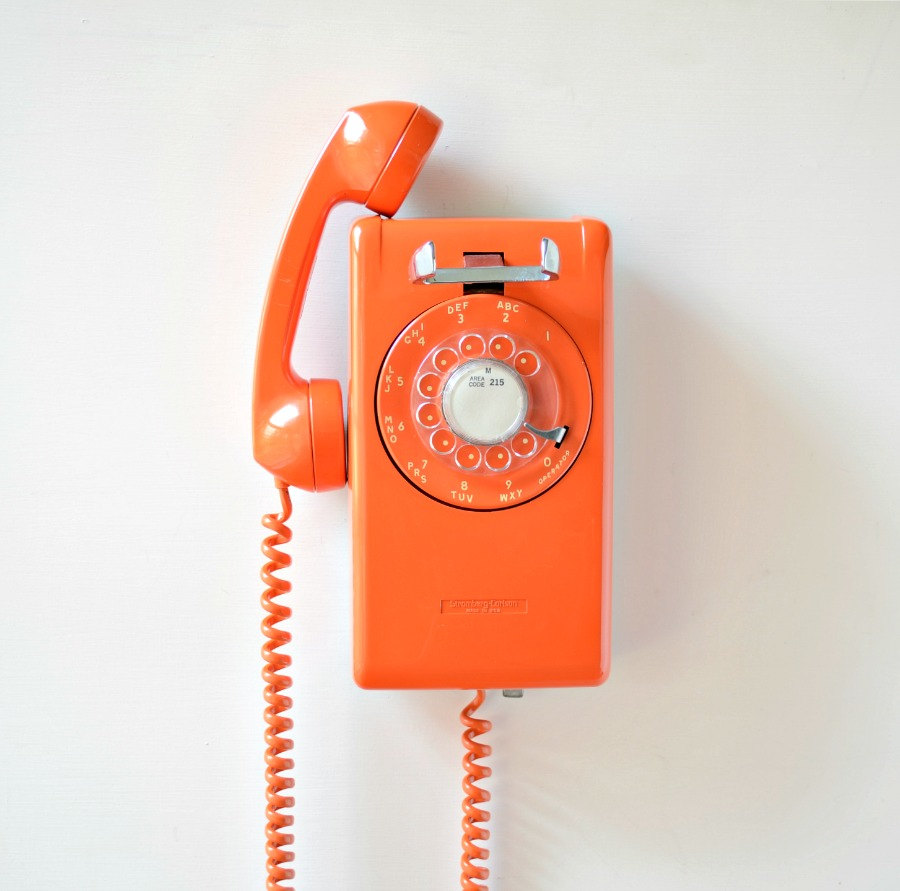Spanish enters the room: words have gender, but there are special cases where the definite article switches gender.
“El hacha roja/Las hachas rojas”, “El agua fría/Las aguas frías”
Also, some words may have both genders:
“El computador/La computadora”
The only way to know for sure is to ask the washing machine how it identifies
Word gender is easy as fuck to learn. Only anglophones seem to have their minds blown BY A FEATURE WHICH DID EXIST IN ENGLISH (and still does in fringe cases)
It’s a she, because that’s a woman job. Same goes for dish washer !
Sorry to disappoint, a dish washer is “un lave-vaisselle”, which is masculine. A car however is “une voiture”, maybe there’s a joke in there about how manly men love their car more than their gf.
Un lave linge, une machine à laver le linge, un lave vaisselle, une machine à laver la vaisselle. It actually all depend on they way you phrase it. Agreed though. It was mostly for the joke.
I never heard anybody say la machine à laver la vaisselle, it sounds way too verbose, everyone says le lave vaisselle
I’m so confused. As a northerner from England with an IQ equal to the ply of toilet paper I use, does every object in French have a feminine or masculine alignment? Or is this some kind of joke privvy to those who don’t have a concerning interest in sheep?
Yep. Most Latin languages have gendered nouns. Italian, Spanish, German etc. All have masculine/feminine objects.
Eg. In Italian a fork is feminine (la forchetta) but a spoon is masculine (il cucchiaio). A table in your living room is a boy (il tavolo) but a table that you’re eating lunch on is a girl (la tavola).
It’s bizarre.
German isn’t a Latin language, it’s in the Germanic branch, along with English, Dutch and others. French, Italian and Spanish are Romance or Latin languages.
True! It’s not just a Latin thing and Slavic languages have it too. I wonder where it came from originally. Probably one of those Proto Indo European things. Though it’s in some Indigenous Australian languages too (though not all) so might be even older?
A lot of languages including Germanic and Romance languages have “gendered” nouns, which is a weird term for “these are some arbitrary categories we put nouns into”. While that idea of noun classes is often called “gender” and they are also named “gender-y” things like masculine and feminine, the idea doesn’t have a lot to do with gender as in identity.
Compare English irregular verbs - how come you don’t say “swimmed”? You “just don’t”, that particular verb is in a different class. Same thing applies to nouns in certain languages, and affects (among other things) how they’re conjugated.
Yes, every noun in French has a gender
I’m learning French and I rationalize voiture as feminine because it carries people, just like pregnant women carry people lol
I’ll help you.
The word “machine” in French is… “machine”, yeah it’s spelled exactly the same. Just pronounce it a lot more like French (stress falls on the 1st syllable instead of the 2nd). Oh, and it’s feminine, which gives you “une machine”.
Washing in French is “laver”. In French, there’s this thing called “complément de nom”, where you add a noun to another noun to make a compound noun. However, there must be a preposition in between, and each compound noun has its own preposition, which means, you gotta learn them by heart (like the phrasal verbs in English except the meaning is actually related to the word).
In the case of this word, you’d use the preposition “à”. You will end up with “une machine à laver”, which translates literally to “a machine to wash”.
Yeah, languages are complicated.
Polish speaker here. We not only have gendered nouns but also verbs and adjectives.
How does that work out? I mean in french you’d gender it by what it is defining. A yellow car, the “A” is gendered the same as the cars gender.
Oh.
I think I get it. That must be confusing for foreigners!
Cheers Polish brothers and sisters!
Nah. Having pronouns would be too easy. We are changing the end of the word. Yellow would be “żółty” if male, “żółta” if female and “żółte” if genderless or plural. Unless male plural, then it would be “żółci”.
polish speaker too, polish is weird smh
Spanish speaker here. For as chaotic and wild as English is, I’ve always appreciated that it has no gendered nouns. Why are chairs female? Makes no sense
Dick in French is, you guessed it, female.
As are mustache and balls. Meanwhile, bra, vagina and boobs are male.
Don’t tell Republicans
Clearly, because chairs are obviously male (German). Anything else is just silly.
Yes, also, mice are obviously female.
I’m sorry, French here, but a chair can be both. It depends of the type : Une chaise is obviously feminine while un siège or un fauteuil are definitely masculin. Also Germanic language like English and German mixing these two meaning are silly languages.
Why. Just why? It’s just you French and your obsession for…
la silla vs el asiento (Spanish)
Fuck.
I think we just spotted a cultural fracture btw people of Romance language and the one of Germanic language.
Maybe you are interested in Finnish. We do not have gendered pronouns either. Everyone is just “hän”.
So you’re saying Hän is Solo?
Hän man is Speedy
Hold my Duolingo owl, I’m gonna look up Finnish that sounds awesome
Can I keep it after that? I always wanted a pet.
Grammatical genders are just that. Grammatical. It’s a classification scheme. Latin had neutral nouns and plenty of languages make grammatical differences between animate and inanimate nouns. That current romance languages make a deliberate division between “male” and “female” nouns does not mean they have to correspond to actual features of human beings.
That being said. It’s ridiculous that agua is femenine but with the definite article it has to be el agua in singular but las aguas in plural. All the explanations by RAE simply amounts to “we like it this way, lolol”.
Chairman, chairwoman, or chairperson?
Somone has to come up with the word chairdude. And some corporate bean counter will invent the word chairhuman to show how diverse they are.
Yet the English speaking countries are the one pushing for a far-left gender ideology that is centered around “gender neutral” language and other crap. lol
Me as a German wondering if it’s the same or different than in my language.
It’s frustratingly different.
What gender is it in German?
Also German is quite systematic in its naming of things (surprise surprise), so specific names have the same gender as the more ‘generic’ root word for the thing
Luckily, for washing machine it’s the same (female) but with others like sun, moon, or table we’re not so lucky. And German having three genders for words and french only two often makes things more complicated.
Seems like both?
le lave-linge / la machine à laver
and
die Waschmaschine
Idk we can do this too, der Waschautomat, less common of course but…
Is there a rule to find the gender in German or do you just have to remember it for each word?
There are some, but many nouns you just have to remember. Diminuitives are neutral, living beings commonly use their biological gender. There are many exeptions, but knowing the origin of them helps (e.g. girl -> das Mädchen is a dimiuitive of maid -> die Maid)
It helps reading books or watching shows/movies in german to get a feel for the gender of nouns.
Female, and I am sure there hides a boomer joke here
I’m countering with a lave-linge which is masculine, now where’s the boomer joke?
Most of the issues English has were inherited from French.
Just wait until you look into French numbers.
I can’t stop giggling about the Danish way of saying that. Like, I don’t even understand how that’s 90? LMAO.
That’s not real. I refuse to believe that.
It is, but we just say seven and half fives these days. Everybody knows the twenty are implied…
You know everytime your mention French number, there is always belgian or Swiss who will tell you :
🇧🇪🇨🇭: 90+7
☝️🤓
please… french swiss…
https://youtu.be/s-mOy8VUEBk?si=1dudvGSjUd9VI11D
🇩🇰🫡
It’s not easy running an isenkramstornunung when nobody remembers what anything is called
Here is an alternative Piped link(s):
https://piped.video/s-mOy8VUEBk?si=1dudvGSjUd9VI11D
Piped is a privacy-respecting open-source alternative frontend to YouTube.
I’m open-source; check me out at GitHub.
An absolute classic that I watch every single time. Kamelåså!
I don’t know what he gave me, but it was wrong 🤷🏻♂️
While learning Danish I figured out that’s just the arcane incantation for the number. It’s language juju, and you just have to know that it be like it do. Yes, it’s syv og halvfems, but the reason behind it doesn’t matter anymore. The rest of the double digit numbers are a mess as well; 30 is tredive (three tens in old norse) but starting with 50 it’s this weird score (20) and half-to-score system.
When I first started learning my brain was desperately trying to make heads or tails of it and rationalize it somehow. And then I realized that was stupid, abandoned reason, and now I just utter these backwards ass numbers and we all nod and everyone is happy lol. Language is weird.
what the actual fuck is wrong with you, denmark?
…whats not?
Cope hagen?
Aebleskiver.
apple slices…?
I think Finnish would be
🇫🇮: 9•10+7
Nine-tens seven
Where do you think nine-ty in English comes from?
I think it comes from nine-tens. But if you check, that commenter didn’t write it so.
Same for Japanese
🇯🇵: 9•10+7
九(kyuu) 十(juu) 七(nana)
Also, similar to English, 20 does not follow the pattern but instead has its own word. (Still written as 2•10 though)
Meanwhile in CJK languages we just chill and say
9 x 10 + 7. Why doesn’t everyone do that?Here is an alternative Piped link(s):
This guy doesn’t like the French way.
Piped is a privacy-respecting open-source alternative frontend to YouTube.
I’m open-source; check me out at GitHub.
What exactly does gender achieve in a language? Is English missing out on any nuance? Is it literally thinking about nouns as male or female, or is it just a weird name for the concept? Who decides gender when a new noun is made? What about borrowed words from other languages? Do you sound stupid if you speak French without using it, or are you just a language hipster?
Language, dude…
What exactly does gender achieve in a language? Is English missing out on any nuance?
Sort of. Grammatical gender and the interplay with grammatical case (the “role” of a noun in a sentence) allows some extra meaning to be packed in. For example, German has 3 genders and 4 cases leading to 12 different contexts for nouns to be in. Many of those have their own conjugation patterns, and separate words for the articles “a/the”.
That can, theoretically, allow meaning of the type “whose what did what to whom” to be obvious or pieced together in a sentence, whereas translating it into English you might need to spell it out, lose it, or rely on context.In practice, a lot of that sort of information is often redundant or clear from context anyway, and only matters if you’re being clever or succinct. My German is shit, so I will not try to provide examples.
It’s also worth pointing out that it’s a naturally occurring feature, likely arisen by accident.
Is it literally thinking about nouns as male or female, or is it just a weird name for the concept?
It is mostly just a weird name. Some of it makes sense along (social) gender lines, much of it makes no sense at all. This thread is full of good examples of counterintuitive noun genders in all kinds of languages.
Who decides gender when a new noun is made? What about borrowed words from other languages?
The speakers of the language, collectively, usually with some disagreement, trial and error. Borrowing depends: a gendered noun borrowed into a non-gendered language would just slip in there. In the reverse case, people would just arrive at some gender for it arbitrarily or based on similar words, what gender any “parts” of the term might be if translated, or whatever other method. There’s no correct answer.
Do you sound stupid if you speak French without using it, or are you just a language hipster?
Quite likely. There’s no “without it” in gendered languages, it is a more or less fundamental part of the noun and the language, like how certain nouns and verbs are just different in English. Dropping random grammar and syntax from English would just be “doing it wrong”, ranging from cute foreign accent quirks to Ralph Wiggum’s cave-dwelling ancestor.
Of course, fucking up is unavoidable when learning languages, and most people will give you a lot of leeway due to being foreign. Maybe not everywhere in France, though…
I’m not an expert. But I believe it is something to do with information redundancy.
If you mishear a word but surrounding words must match gender and number, you may reconstruct the misheard word.
As a native spanish speaker, I don’t think of the actual sexuality of objects, it’s just a characteristic of the word that should match other words in the sentence. For example the word screen (pantalla) is femenine, and the word monitor (monitor) is masculine. So when I see my monitor I don’t think of an actual female or male object. But the nouns should match adjectives gender, so if someone says “broken monitor” (monitor roto) or “broken screen” (pantalla rota) I have this kind of redundancy if I misheard a word.
But I’m not an expert of linguistics. Don’t quote me.
This sounds right. I think it’s just a hint for listeners for what the noun might be, and it happens to align to the male/female genders.
English weirdly use feminine for ships, so think of it like that. But no it doesn’t achieve much.
I don’t think it change the way we think about objects much, but probably unconsciously yes. For example, France itself is feminine and seeing some caricature personifying as a dude always feels weird.
Usage dictates the gender. And some recent words are more or less controversial: gameboy, wifi, COVID, Nutella…
When I think about the gender of a word I will usually derive it from a broader category. But that’s not always obvious, for example Gameboy is a game console (feminine) but the words game and boy are masculine. COVID is a disease (feminine) but also a virus (masculine). And in the meme a washing machine is a machine (feminine).
You can’t not use gender since french doesn’t have neutral pronouns. But I don’t think it’s frowned upon for a non native speaker to make this kind of mistakes.
Old English used gender, and there are a few vestiges of it left in modern English. A couple adjectives can still use it (blond man, blonde woman), and a few nouns are still in use (actor vs actress). Some of those nouns have basically fallen out of use in the last few decades, like how pretty much no one uses comedienne anymore.
on borrowing we can look at nouns borrowed into Spanish. They take the word change any sounds in native language to match Spanish sounds. Then they just slap on a gender ending. Yes it just what ever catches on. Which means we could have lived in world with potata.
Civilization if the Spanish used ‘potata’:

Gender from french genre, latin genus, means category and that’s all it is, a category system, with confusing category names and no real rules for which word belongs to which category. There’s nothing masculine, feminine or neuter about words, nothing “sexual” or whatever, otherwise every person would be a woman because the word for person (from latin persona) is feminine in a lot of european languages, or French and German people would have to think really different about stuff like tables because in French it’s “feminine” and in German it’s “masculine”. Btw, looking at English adjectives with French origin they almost always are the feminine version, like feminine or masculine. Some people think there is a hidden sexual meaning though and they come up with lots of different systems for gender neutral language, stuff like latinx.
You can’t speak french without using it, because the gender of a word changes the gender of particles attached. Think as if in English there was a male “the” and a female “the”, like “mthe” and “fthe”. You can’t just not choose on of those to talk about fthe sun!
Gender in nouns exists to reduce ambiguity (in general, complexity reduces ambiguity), especially in times before widespread dictionaries or even the internet.
More ancient languages with more widespread use tend to be even more complex: think of latin, where particles are inserted within the word depending on their function in the phrase. It’s as if in English to say “I go to work” we’d say “I go workt”, but to say “this is for work” we’d say “this is workf” Again, more complex to be less ambiguous
You sound odd, like a child or someone not fluent if you don’t use our misuse the genders of words.
That being said, as native Spanish that lived in the UK for a while, I noticed that genders and verb forms are useful for providing more context when talking.
Cannot think of specific examples now, but in general in a phrase if you don’t hear a word or don’t know the meaning, it is easier to guess it because the rest of the phrase is constructed around the gender and more complex verbal forms.
Speaking as a gendered language user (Italian) it is sometimes weird.
For example, car is feminine but our name for an off-road vehicle is masculine, as is the word for truck. Since you have to apply the gender of the noun to verbs, articles and adjectives, which one do you use when talking about your SUV? Feminine because it’s a car or masculine because it’s an offroader?
For borrowed words there’s usually a consensus on gender that forms over time. Sometimes a borrowed word inherits its gender from the translation of that word that fell out of use. One example of this could be the word computer. An equivalent term exists in Italian (calcolatore) which fell out of use but gave it a definite gender, masculine.
Russian speakers might say the same thing about things that exist in English but not Russian like articles (the words “a”/“an” and “the”), Afrikaans speakers may say the same thing about verb conjugation at all, Chinese speakers may say the same thing about tense, Japanese speakers may say the same thing about having a separate present & future tense. There is a good explanation here or two already, but language features that seem “useless” or “complex” to us are important in other languages and are there for a purpose. Every language has features that would make others question it.
Romance fans will tell you the French language is the adoration of beauty.
The British will tell you that the french taste for beauty is the same as their taste for cheese: it stinks.do you trust the British though?
Considering their world renowned taste in cuisine, not really.
Changing genders, when not speaking about a gender, is antiquated and should be removed from language rules.
In Thai men use different words than women. Men use Krub, women use Ka/kha, to end a sentence.
In Russia the wife has a different last name than the husband. Like, Igor Sechin, Yulia Sechina.The Russian thing is the same in Czech, it’s actually set in law iirc. Also for some random reason when people talk in past tense you’re able to tell the gender of the speaker
In Russia the wife has a different last name than the husband. Like, Igor Sechin, Yulia Sechina.
Also when the subject of a sentence is female, the verb sometimes has a female form.
For example
He went/Он шол
She went/Она шла
German wants a word.
Swahili with its eighteen noun classes strides above it all like an eldritch god
It can take as many as it pleases
And it will take all those words and glue them together to form one giant compound noun.
Rindfleischetikettierungsüberwachungsaufgabenübertragungsgesetz





























